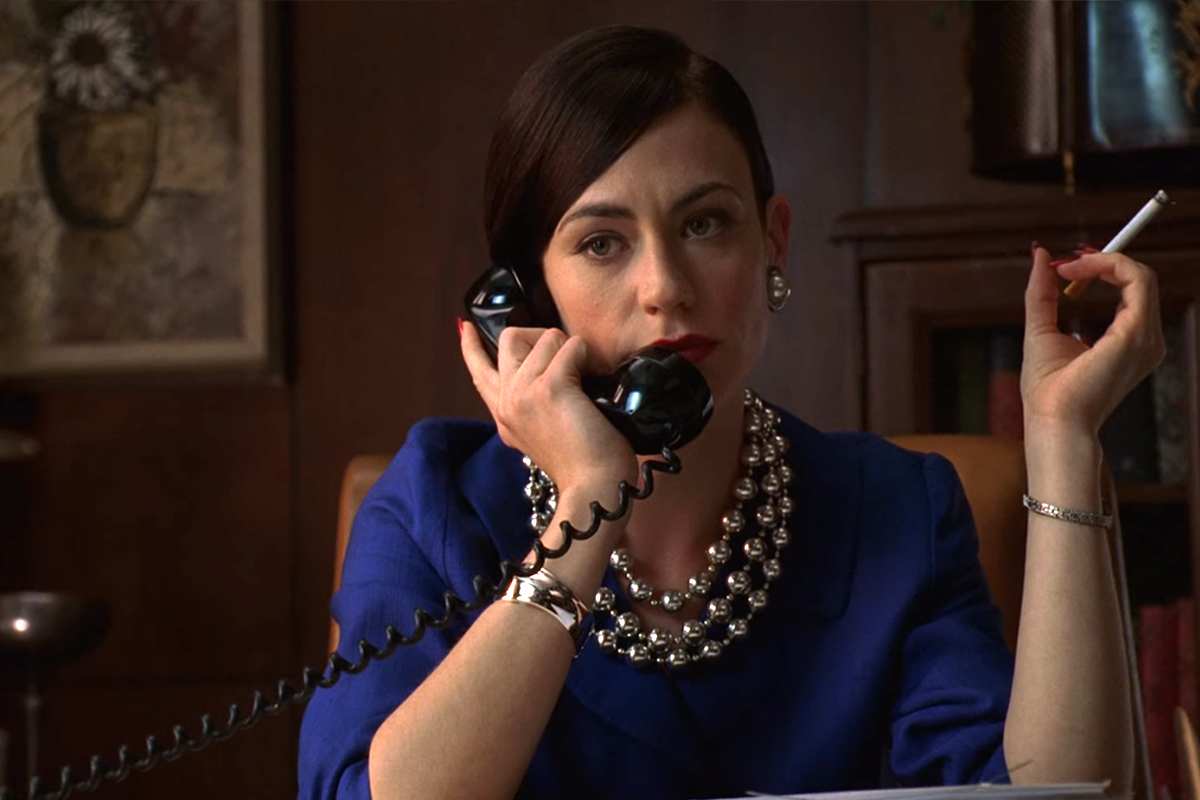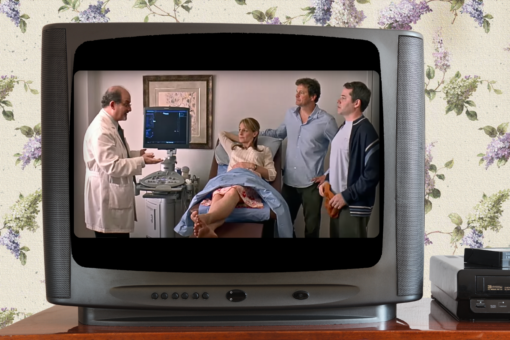From a young age, I found myself fascinated by the world of film and television. Most of my childhood was spent sitting right in front of my parents’ television set, watching elaborate stories unfold and fanciful words spill out of strangers’ mouths. I loved it. I was completely enthralled by it. I wanted to jump through the screen and become a part of each and every one of those tiny, fictional microcosms I adored so much.
Naturally, I would try to find bits and pieces of myself in the characters, searching for a way to insert myself into their stories. But as a Jewish American woman, I seldom found characters that shared my cultural and ethnic identity without appearing as vulgar caricatures. These creative mediums I treasured so deeply began to define and frame the Jewish American woman as a materialistic, spoiled brat with comically frizzy hair, such as Parks and Recreation’s Mona-Lisa Saperstein, who notoriously screams out “Money, please!” Excluding the hair, Glee’s Rachel Berry perfectly fits the bill as well. Film and TV taught me that if Jewish American women were funny, it was due to their brashness, causing them to always end up as the butt of the joke, like Janice from Friends, whose stereotypically loud personality was seen as a form of comedic relief. The Jewish American woman could never be beautiful or desired. She was never an “it girl” — in fact, she was the exact girl you didn’t want to be.
I inherently began to see my identity as a negative thing, feeling trapped and attacked by these stereotypes that seemed to be shouting at me. I didn’t see myself in any of these Jewish female characters and I despised the suggestion that I was supposed to. This feeling followed me into adulthood until one day, when my boyfriend advised me to start watching a show called Mad Men.
Set in 1960s Manhattan, Mad Men explores the glamorous world of advertising through the lens of its elusive and captivating protagonist, Don Draper, all while examining and exposing the toxic societal structure of its era. I cherish this show for a plethora of reasons, ranging from its clever and tantalizing storytelling to its poetic and witty dialogue, but there is one reason in particular that causes me to hold the series so dearly in my heart, and that reason is Rachel Menken.
Rachel Menken enters the first season of Mad Men as an ambitious and modern Jewish American businesswoman, looking to transform the department store she inherited from her father into something contemporary, stylish, and innovative. She employs Sterling Cooper, an esteemed ad agency dominated by ego-driven white men in designer suits, to bring her vision for Menken’s department store into fruition. Sterling Cooper, the crème de la crème of ad agencies in Manhattan, is affiliated with high end clients such as Lucky Strike and Playtex, but it is the very presence of a Jewish woman sitting at their conference table that creates a thick film of tension and discomfort in the air, leading them to gawk at her in both judgment and awe. Rachel immediately becomes the “other” in the room, due to her identity as a Jew, a woman, and her executive role in her father’s business. As she sits at that table, outnumbered by Christian-leaning, elitist businessmen with their gelled hair and smug faces, she emits complete authority and confidence. She knows that her identity makes them unreasonably uneasy, but it doesn’t unnerve her. In fact, it exhilarates her.
Rachel Menken’s character, at first glance, may appear to fall into the traps of the Jewish American Princess stereotype, considering her father’s accumulated wealth, but Rachel quickly proves that this is not the case. Throughout the series, we learn that Menken’s department store was only founded 60 years prior by her father. Her father built the business from the ground up and worked tirelessly to turn it into the success it ultimately became. During an intimate conversation she shares with Don Draper, she recalls spending days and nights wandering around the store as a child during business hours, watching her father labor away in order for the department store to prosper and grow as it eventually did. Rachel was raised to understand the value of hard work, along with the value of a dollar. She never took the monetary comforts of her father’s business for granted. In fact, instead of living leisurely off Menken’s income all day as a typical heiress would do, she often shows up to the store and oversees the operations. She puts the work in when it comes to Menken’s, distancing her from any trope.
When I first saw Rachel Menken on my screen, fearless and polished in a sophisticated purple ensemble and pearl earrings, I felt completely elated. Here was this Jewish American woman, exhibiting both strength and femininity, commanding the room and demanding more from a group of people who were convinced that she did not deserve it. When Don Draper suggests a business model for her store that emphasizes coupons and low prices, Rachel is quick to shut him down. She demands a strategy that would help Menken’s rise to the ranks of stores like Chanel and Tiffany’s, which shocks every executive and copywriter sitting at that conference table. They don’t believe in her, but Rachel’s belief in herself, along with her skillset and intellect, is enough to challenge the cocktail of misogyny and antisemitism swarming around her. They have no choice but to respect her.
Not only is Rachel Menken headstrong and bold, going against the grain of every expectation society has towards her, she is also framed as attractive and desirable — qualities I was led to believe could not be possessed by a Jewish woman. She completely charms the handsome notorious Casanova that is Don Draper through her witty banter and brilliance, leading the two of them to engage in a heated affair. This affair eventually, along with a series of other plot-related details, drives Don to ask Rachel to run away with him. I could have never expected to see a Jewish woman have such a hold on a lothario-type male character — someone regarded as the object of every woman’s affection.
According to the showrunner, Matthew Weiner, and as agreed upon by most Mad Men fans, Rachel Menken is often regarded as “the one who got away.” This Jewish female character holds the exclusive title of being the only woman to break up with the infamously irresistible Don Draper, and not the other way around. Raised on a media that insinuated Jewish women were not heartbreaker material, Rachel Menken completely challenges that notion.
While Rachel Menken was only a side character within Mad Men, her presence remains especially precious and significant to me six years after the series finale. Her character embodies all of the nuance and resilience that the Jewish American woman possesses. She champions hard work and determination, earning her keep despite the success of her father’s business. She fights for her place in a world occupied by individuals who don’t want to see her win, due to her ethnic Judaism and womanhood — the two qualities she wears with pride. Rachel Menken celebrates and champions the Jewish American woman, singlehandedly attacking and disproving every preconceived, offensive notion I was taught to believe about women like me.
To see a Jewish American woman represented as an absolute powerhouse isn’t just endearing, it’s absolutely vital. In a world so dominated and possessed by film and TV, Jewish American women deserve more characters like Rachel Menken. We deserve to see ourselves represented in a way that continues to embolden us, as Rachel Menken has emboldened me.



